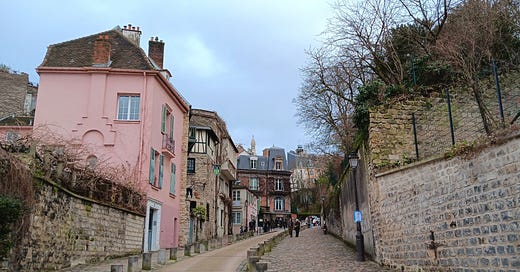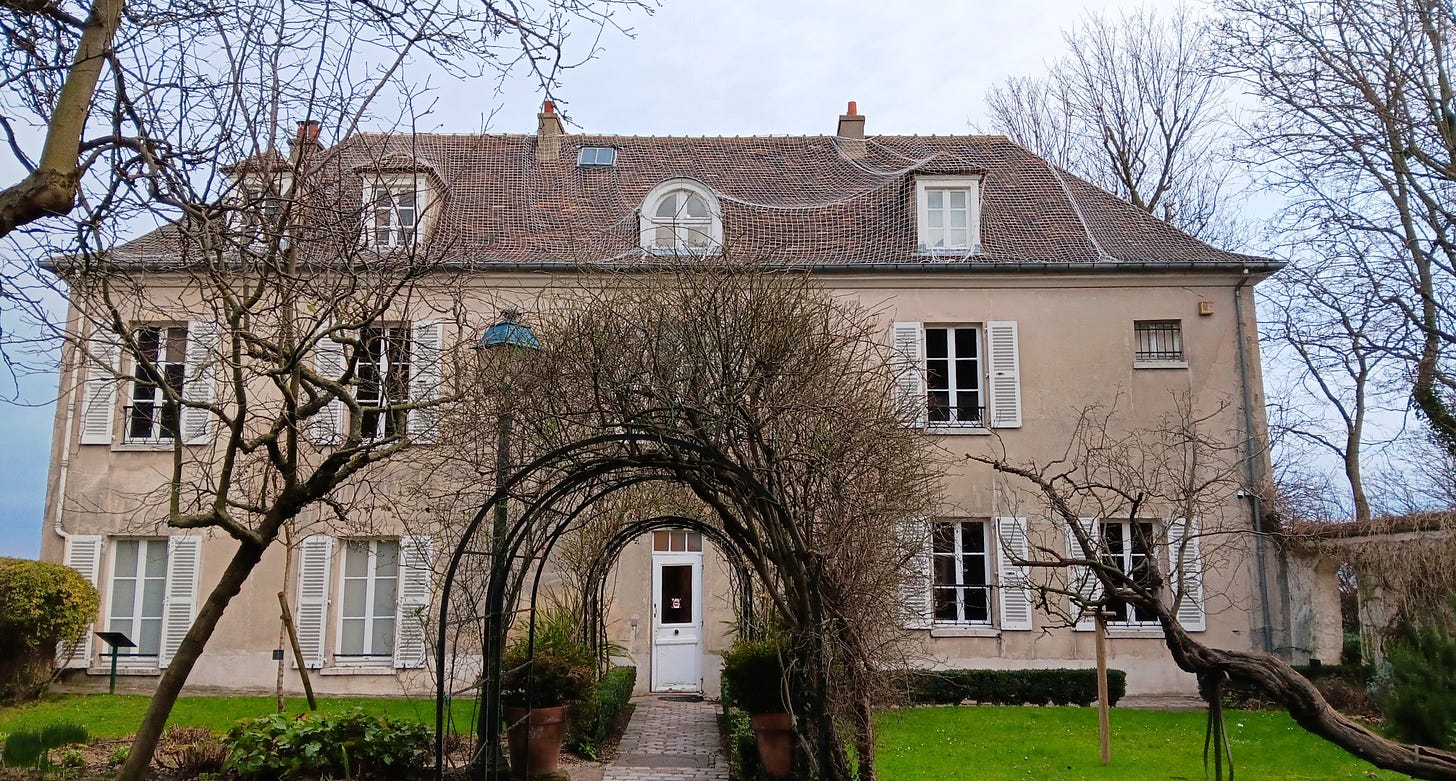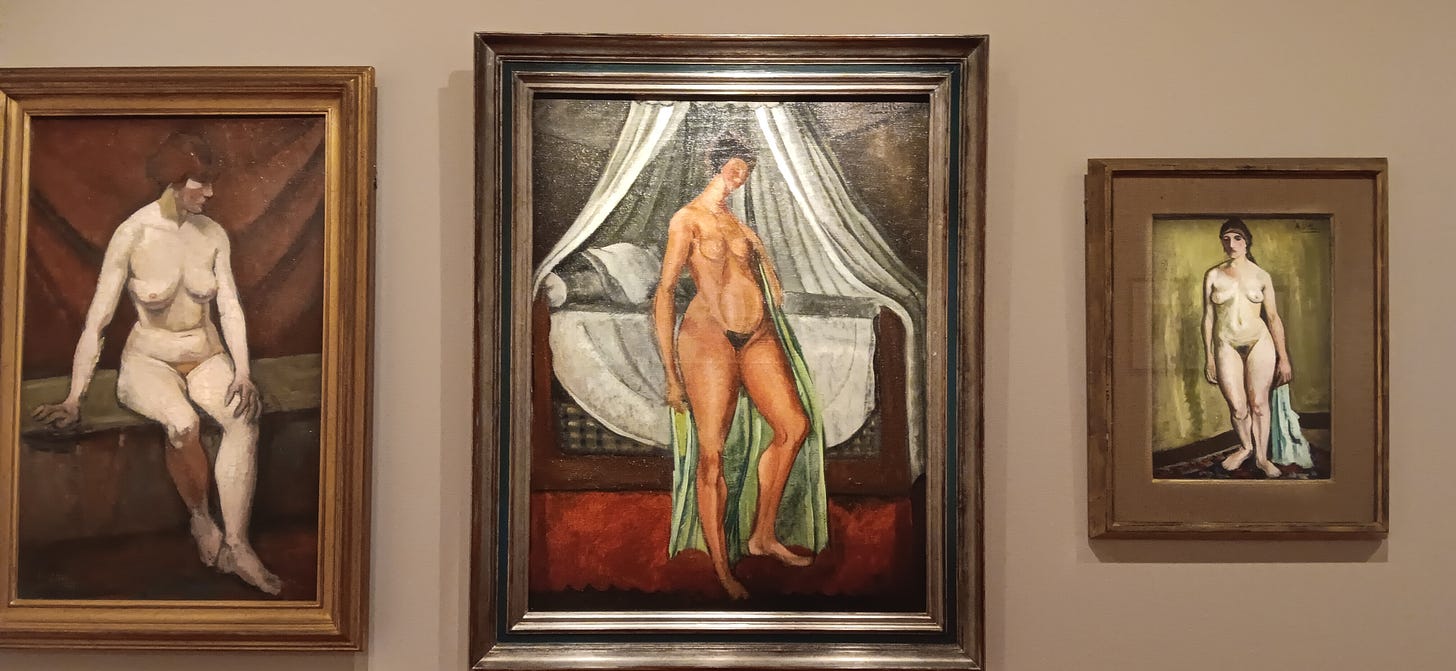How I learned to like Paris
In the decades since I left it behind, my native city has changed for the better
This week "Out of France" is in Paris. This is not a paradox, or even original: as people have been leaving the city in droves for decades, many look now on it as outsiders. Over the years I have done so with increasing benevolence, and that has come as a surprise. This post explores the reasons for my changing view.
As a resident until the early 1990s, Paris gave me the blues. The glamorous capital existed as an ideal, divorced from the daily grind; the city I inhabited was a place of hunched shoulders and sharp elbows. In the metro you gazed vacantly at fellow zombies as you rattled towards Chaussée d'Antin.
You didn't need to work for the RATP transport system to identify with Serge Gainsbourg's despondent ticket puncher: "Je suis le poinçonneur des Lilas/Le gars qu'on croise et qu'on ne regarde pas… J'en ai marre de ce cloaque/J'en ai ma claque."
I was puzzled by the respect Paris got from foreigners. Parisians never showed them any. For a visitor, the city of light is really the city of slights. Why, I wondered, is it regarded as an international centre of culture? There is nothing more parochial than a Parisian intellectual. The awe in which cosmopolitan Americans held people who hold their country in particular contempt seemed perverse.
Even invaders have treated Paris with baffling reverence. The Romans called it "Lutetia", which they were entitled to do as they had built the city. But then they renamed it in honour of the local Celtic tribe they had vanquished, the Parisii. The special treatment continued down the centuries. Russian soldiers, never known for their restraint, behaved impeccably when they occupied Paris in 1814 (and this was after the French army had pillaged its way to Moscow and back). In 1944 the Nazi commander in charge was ordered by Hitler to destroy the city as the allies closed in. He couldn't do it.
The best explanation I could think of for such graciousness was exoticism. But those who knew Parisians well and were stuck with them, their compatriots, were less likely to defer to them. Relations between the capital and the rest of France have historically been tense. During and after the revolution, Parisian activists made a habit of storming the national legislature to impose their agenda on reluctant provincials. The bloodiest phase of that conflict came in 1871, when the Commune took up arms against the elected government and the insurrection was brutally put down.
It was not until 1977, after a century of gentrification, that Paris was allowed to have its own mayor again. Even then, stroppy locals rejected the centre-right candidate backed by the government in favour of a conservative dissident, Jacques Chirac. But the process of normalisation continued. Over the past 25 years, mayors have been fashionable socialists, the opposite of contrarians.
That brings me to back to my changing view of Paris. When I left it in 1991, the taming of the city had only just begun. The middle class had transformed its look but not its feel. The streets were still unforgiving. The only people you could approach and be certain of a courteous response were the ubiquitous policemen. Generally, you had to project a sense that you wouldn't let anyone walk all over you. Your demeanour and facial expression had to say: I can give as good as I get.
When I moved to London, it was a relief to ditch an armour that never fitted me. These days, Parisian elbows are still sharp but you no longer have to wear that protective shell all the time. And it's not just the cops now: in recent years I've had polite exchanges with RATP agents and waiters.
What happened? The best explanation I can think of for this softening of mores is the gradual of the merging of the local middle class into the globalised bourgeoisie. In terms of social norms, Paris is not just more like the rest of the France: it is more aligned with the rest of the world. It had become what the geographer Christophe Guilluy calls a ville monde.
In the process, it may have lost some of its exoticism, but only the most deleterious aspects of it. Admittedly, the shift has its ugly aspects. As English is the idiom of the globalised gentry, the French language has suffered. Parisian sophisticates now say "définitivement" to mean "absolutely", to cite just one common solecism.
Cultural industries are particularly susceptible to the adverse effects of standardisation. Yesterday I visited the musée de Montmartre, where you learn about the rich history of that area – including its role as a magnet for impressionist painters. In the section about models (pictured above), a panel states that Montmartre's "marginalised" women could earn much more in a four-hour modelling session then they did in 12 hours of factory work.
The caption adds: "However this profession was fraught with risks for the models. In the collective imagination, they were wrongly associated with prostitutes... Pressured to maintain appearances dictated by the male gaze, they endured short careers conditioned by their youth."
This boilerplate narrative is found in exhibitions on all manner of subjects from LA to Copenhagen and Sydney. It is singularly reductive in the city of Irma la Douce and Arletty. The proud, outspoken fille du peuple is not just a stereotype. Hard as life was for Belle Epoque models, they would have given an earful to anyone who described them as victims of the "male gaze".
Such snobbery masquerading as compassion may be ridiculous but it should be kept in perspective. Some say identity politics has exacerbated conflicts in French society. As an old Parisian, I know that the city is not the cauldron of grievance and strike it once was. The import of Anglo-Saxon affectations may be a small price to pay for more civilised manners.





